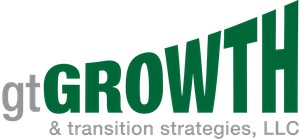For business owners who are thinking about exiting their business in the near (or not so near) future, there are many things to consider to assure the business transition happens in a smooth manner. Owners are wise to seek the counsel of advisors in this complex and delicate area. While discussing an exit with a professional advisor, owners are well served in asking how the advisor that they are speaking with perceives their role, as well as, how that advisor is compensated. This newsletter makes the argument that in order for this process to go smoothly, owners should seek out the counsel of ‘relationship-based’ advisors in favor of ‘transaction-based’ advisors to create and begin implementing a multi-year exit planning process.
Understanding an Advisor’s Role in an Owner’s Life
Advisors enter a business owner’s world mostly on a reactive basis, usually because there is a need for assistance with an outstanding issue. For most owners the relationship with their accountant is the most consistent and often the most trusting in the realm of financial issues and that is simply because state and federal governments require, at a minimum, that businesses – and their owners – file their taxes each year. This is, again, a reactive (albeit very important) approach to the process of finding an advisor.
However, some business owners buck this trend and actually take a proactive approach to working with their advisors, including a commitment to planning for the future. These owners recognize the importance of ‘staying one step ahead’ and they seek out the best advisors for their short-term and long-term needs.
The Relationship-Based Advisor versus the Transaction-Based Advisor
So, given that most owners work with professional advisors, it is helpful to categorize them. The world of professional advisors can be neatly divided into two (2) types; relationship-based advisors and transaction-based advisors.
Relationship-based advisors are those who come into the business owner’s lives and work with them, year-in and year-out, on a consistent basis. Two of the leading relationship-based advisors are accountants (for reasons stated already) and attorneys (often at the beginning of a business venture and again when the need arises). Many owners also confide and place their trust in financial planning professionals, insurance and risk management advisors as well as general business coaches and consultants. These advisors take the approach that a relationship with a business owner exists over a long period of time and they remain available to these owners as needs arise.
Transaction-based advisors are those who approach the relationship with the owner with an eye towards addressing a specific, non-recurring issue for that owner. These advisors might include real estate brokers, consultants who start and complete certain projects for owners, valuation professionals as well as mergers and acquisitions advisors. These advisors enter the lives of owners to execute a certain transaction. For the most part, these advisors also plan to leave the owner’s life shortly after the transaction / project ends.
Exit Planning is a [multi-year] Process, Not a Transaction
The process of exiting a business is not a transaction, but rather it is a process. The process includes an owner thinking through all of the implications of the business running without their individual efforts as well as how the owner would live without the business. Owners who go through this process ask themselves, ‘who will run the business other than me?’ and ‘what would fill my life in the absence of working in the business?’
Answering these seemingly simple questions and planning a separation from your business has a high level of complexity that takes time to understand and, once understood, to make critical decisions around. Unlike a transaction, the exit planning process requires the benefit of time and self-reflection to decide what is best for you both from a business and a personal perspective. This newsletter suggests that a relationship-based advisor is a critical partner in helping to gain clarity around these issues.
Now, with all of that being said, an exit planning process may very well end with a transaction. When this happens, those transaction-based advisors are invaluable to the process of completing a deal. However, there are a few important caveats to remember: (1) a transaction is the output of the process, not the immediate objective and basis for an engagement, and (2) the transaction-based advisor can learn from the exit planning process to execute on the transaction that best meets your goals.
Why Relationship-Based Advisors Are Ideal for Exit Planning
Given that exit planning is a process, it is important for owners to have a trusting relationship with the advisor who guides them through this multi-year process. Relationship-based advisors set up their businesses to view clients as ‘lifetime clients’, coming in and out of their lives as needed. And, as an owner going through an exit planning process, it is likely that you will want time to answer the sensitive questions that await you. Your relationship-based advisor will take the time to help you reach your long-term goals while transaction-based advisors, generally speaking, are not equipped to conduct a multi-year process to guide an owner in this way. Rather, many of these advisors would prefer to be called at the time that a transaction is ready to be executed. As an aside, if you find a transaction-based advisor who is truly willing to serve in a relationship basis with you, then you should consider yourself fortunate as these advisors are hard to find.
Next Steps in the Exit Planning Process
This newsletter is not written to judge one type of advisor as better than another. Rather, it is crafted to remind owners that an exit planning process is one that should not be conducted alone and should include the patience and approach that relationship-based advisors bring to the owner. We hope that you find this helpful in advancing your exit planning forward.
Read More




 full report.
full report.